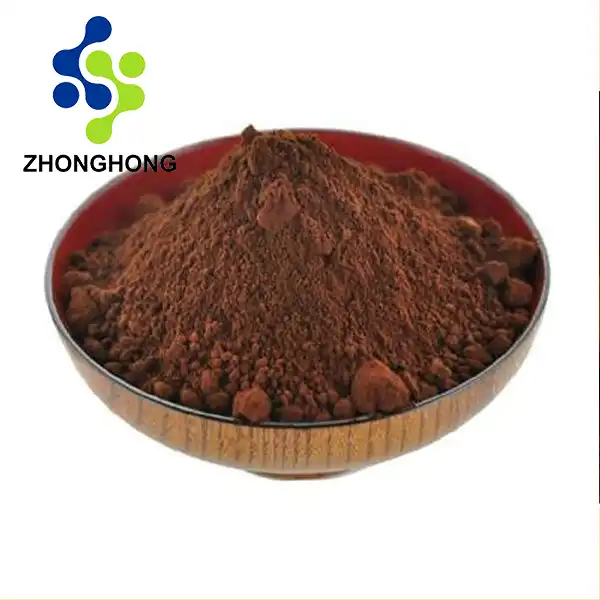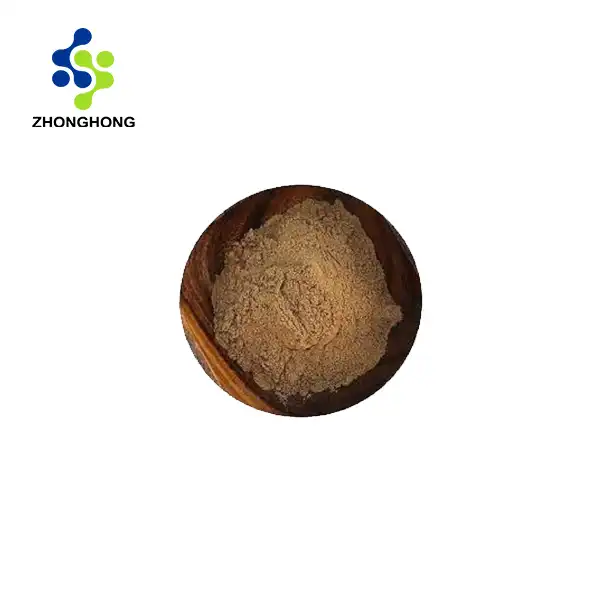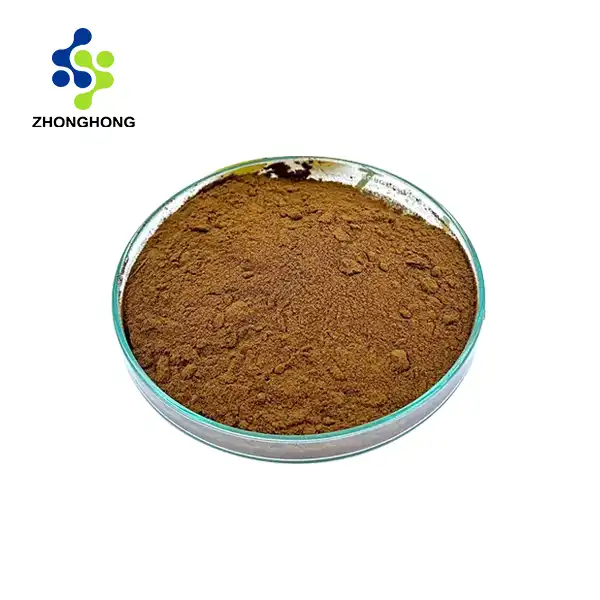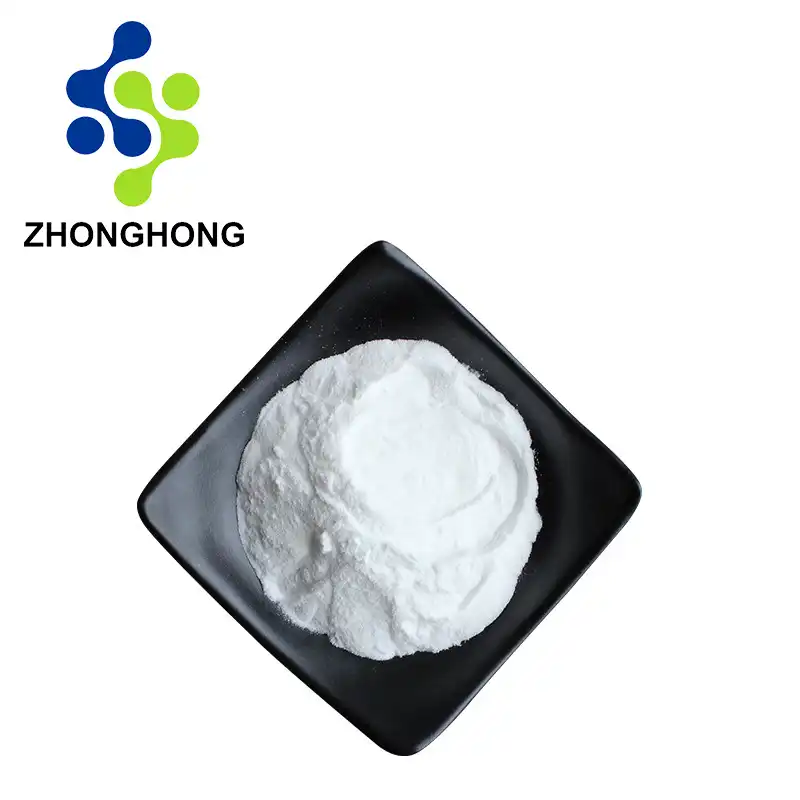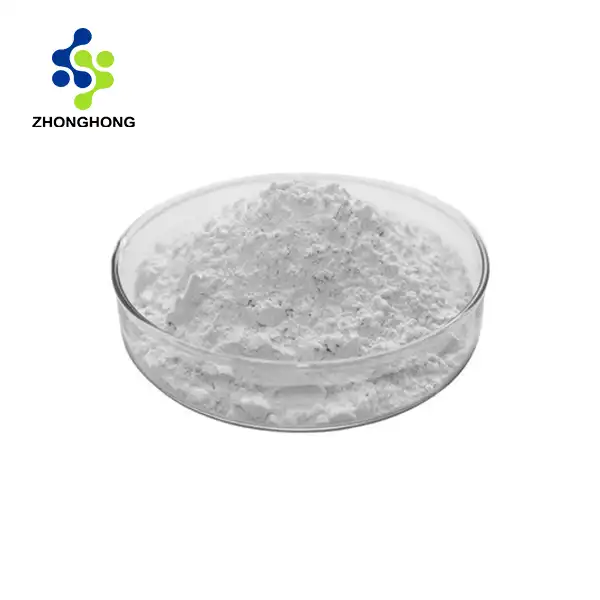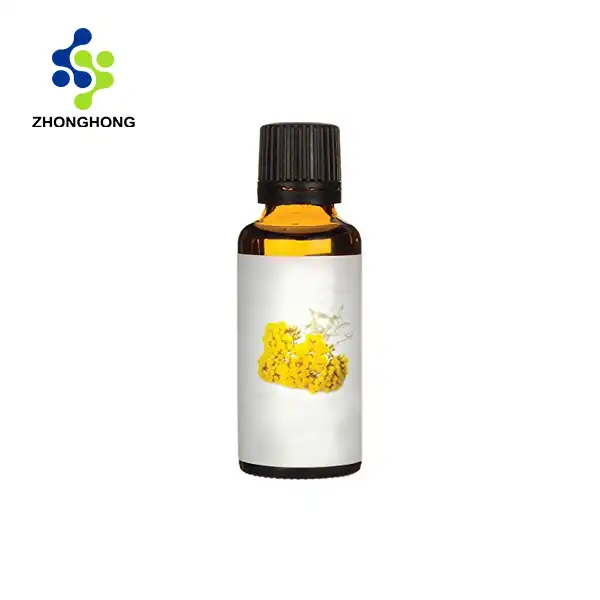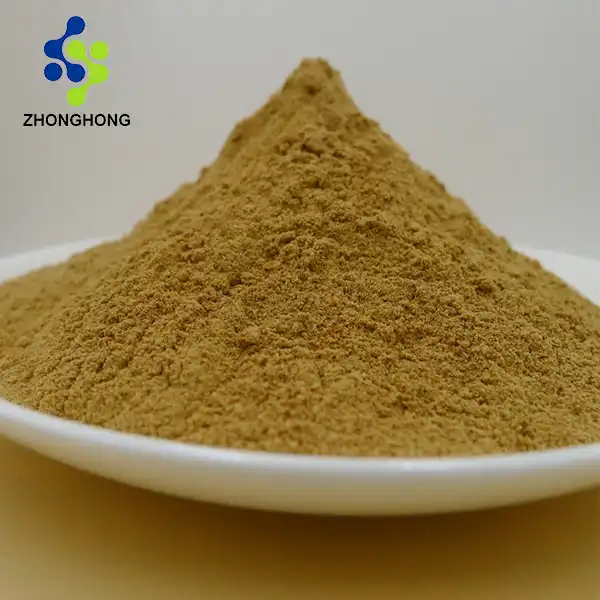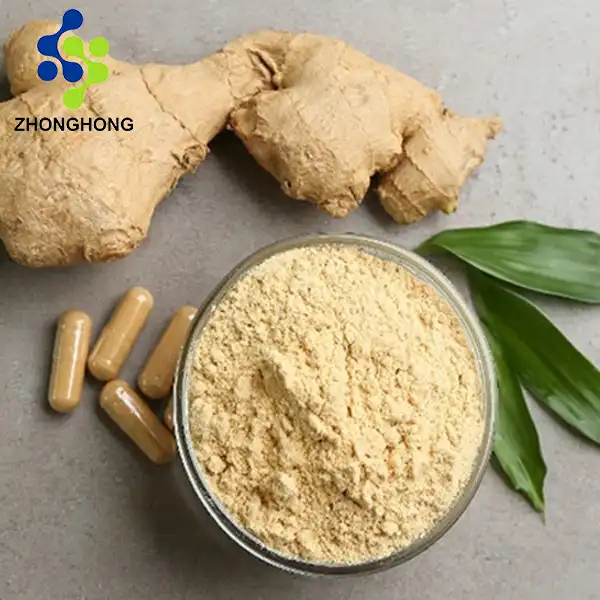Bakuchiol for Acne: A Gentle Solution
2024-12-20 15:39:44
Acne is a common skin concern that affects millions of people worldwide. While traditional treatments like retinol and salicylic acid have long been go-to solutions, a new player has entered the skincare arena: bakuchiol. This plant-based ingredient is gaining popularity for its gentle yet effective approach to treating acne and improving overall skin health. In this blog post, we'll explore how bakuchiol works to combat acne, compare it to other popular acne-fighting ingredients, and provide tips for incorporating it into your skincare routine. Whether you're dealing with occasional breakouts or persistent acne, bakuchiol may be the gentle solution you've been searching for.
How Bakuchiol Fights Acne and Breakouts?
The Science Behind Bakuchiol's Acne-Fighting Properties
Bakuchiol is a natural compound derived from the seeds and leaves of the Psoralea corylifolia plant, also known as the babchi plant. This ingredient has been used in traditional Ayurvedic and Chinese medicine for centuries, but its potential in modern skincare has only recently been recognized. Bakuchiol's molecular structure allows it to interact with skin cells in a way that promotes overall skin health and helps combat acne. One of the key mechanisms by which bakuchiol fights acne is its ability to regulate sebum production. Excess sebum is a major contributor to acne formation, as it can clog pores and create an environment where acne-causing bacteria thrive. Bakuchiol helps to balance oil production, reducing the likelihood of pore blockages and subsequent breakouts.
Anti-Inflammatory and Antibacterial Effects
Inflammation plays a significant role in the development and persistence of acne. Bakuchiol possesses potent anti-inflammatory properties, which help to calm irritated skin and reduce the redness and swelling associated with acne lesions. By soothing inflammation, bakuchiol can help prevent the formation of new acne and speed up the healing process of existing blemishes. Additionally, bakuchiol has been shown to exhibit antibacterial properties. While it may not be as potent as some traditional antibacterial agents, its ability to inhibit the growth of acne-causing bacteria contributes to its overall effectiveness in managing breakouts. This gentle antibacterial action helps to create a less hospitable environment for acne-causing microorganisms without disrupting the skin's natural microbiome balance.
Cell Turnover and Skin Renewal
One of the most impressive aspects of bakuchiol is its ability to promote cell turnover and skin renewal. Similar to retinol, bakuchiol stimulates the production of collagen and elastin, two essential proteins that maintain skin's structure and elasticity. This increased cell turnover helps to unclog pores, reduce the appearance of acne scars, and improve overall skin texture. Unlike retinol, however, bakuchiol achieves these benefits without causing the irritation, dryness, or sensitivity often associated with retinoid use. This makes it an excellent option for those with sensitive or acne-prone skin who may not tolerate traditional retinol products well.
Bakuchiol vs Salicylic Acid: Which Is Better?
Mechanism of Action
When it comes to acne treatment, salicylic acid has long been a staple ingredient. However, bakuchiol is emerging as a compelling alternative. To understand which might be better for your skin, it's important to compare their mechanisms of action. Salicylic acid is a beta-hydroxy acid (BHA) that works primarily by exfoliating the skin. It penetrates pores to dissolve excess oil and dead skin cells, effectively unclogging pores and preventing new acne formation. Salicylic acid also has mild anti-inflammatory properties, which can help reduce the redness and swelling associated with acne. Bakuchiol, on the other hand, works more like a retinol alternative. It stimulates cell turnover, promotes collagen production, and regulates sebum production. While it doesn't exfoliate in the same way as salicylic acid, bakuchiol's ability to promote skin renewal can help prevent pore clogging and reduce acne formation.
Skin Tolerance and Side Effects
One of the key advantages of bakuchiol over salicylic acid is its gentleness on the skin. Salicylic acid, while effective, can be drying and irritating for some people, especially those with sensitive skin. Overuse of salicylic acid can lead to excessive dryness, redness, and even peeling. Bakuchiol, in contrast, is generally well-tolerated by most skin types. It doesn't typically cause the dryness, irritation, or increased sun sensitivity associated with other acne-fighting ingredients. This makes bakuchiol an excellent option for those with sensitive or reactive skin, or for individuals who have found traditional acne treatments too harsh.
Long-Term Benefits and Versatility
While both ingredients can be effective in managing acne, bakuchiol offers additional long-term benefits that make it a versatile choice for skincare. Beyond its acne-fighting properties, bakuchiol has been shown to improve overall skin texture, reduce the appearance of fine lines and wrinkles, and even out skin tone. Salicylic acid, while excellent for managing acne, doesn't offer the same anti-aging benefits. This makes bakuchiol a more comprehensive solution for those looking to address both acne and signs of aging simultaneously. Ultimately, the choice between bakuchiol and salicylic acid may depend on your specific skin concerns and tolerances. Some individuals may find that a combination of both ingredients, used at different times or in different products, provides the best results for their acne-prone skin.
Skincare Tips for Acne-Prone Skin with Bakuchiol
Incorporating Bakuchiol into Your Routine
Adding bakuchiol to your skincare routine can be a game-changer for acne-prone skin. To maximize its benefits, consider the following tips:
- Start slowly: If you're new to bakuchiol, begin by using it once every other day to allow your skin to adjust. Gradually increase to daily use as your skin tolerates it.
Choose the right formulation: Bakuchiol is available in various forms, including serums, creams, and oils. For acne-prone skin, a lightweight serum or gel formulation may be most suitable to avoid clogging pores.
- Use it consistently: Like many skincare ingredients, bakuchiol works best with regular, consistent use. Incorporate it into your daily routine for optimal results.
- Apply at night: While bakuchiol doesn't increase sun sensitivity like retinol, using it at night allows it to work uninterrupted while your skin is in repair mode.
Complementary Ingredients and Products
To enhance the acne-fighting effects of bakuchiol, consider combining it with other beneficial ingredients:
- Niacinamide: This vitamin B3 derivative pairs well with bakuchiol, as it helps to regulate sebum production and reduce inflammation.
- Hyaluronic acid: To combat any potential dryness, use a hyaluronic acid serum to maintain skin hydration.
- Antioxidants: Ingredients like vitamin C can complement bakuchiol's anti-aging benefits while providing additional protection against environmental stressors.
- Gentle cleansers: Use a mild, non-comedogenic cleanser to avoid stripping the skin of its natural oils, which can lead to increased oil production and breakouts.
Lifestyle Factors for Acne Management
While incorporating bakuchiol into your skincare routine can significantly improve acne-prone skin, it's important to consider other lifestyle factors that can impact skin health:
- Diet: Some studies suggest that certain foods, particularly those high in sugar and dairy, may exacerbate acne in some individuals. Consider keeping a food diary to identify any potential triggers.
- Stress management: High stress levels can contribute to increased oil production and inflammation. Incorporate stress-reducing activities like meditation, yoga, or regular exercise into your routine.
- Sleep: Adequate sleep is crucial for skin repair and regeneration. Aim for 7-9 hours of quality sleep each night.
- Sun protection: While bakuchiol doesn't increase sun sensitivity, protecting your skin from UV damage is crucial for overall skin health and acne management. Use a non-comedogenic sunscreen daily.
By combining these lifestyle factors with a bakuchiol-based skincare routine, you can create a comprehensive approach to managing acne-prone skin and achieving a clearer, healthier complexion.
Conclusion
Bakuchiol offers a promising solution for those struggling with acne-prone skin. Its gentle yet effective approach to fighting breakouts, combined with its additional skincare benefits, makes it a versatile ingredient worth considering. By incorporating bakuchiol into a well-rounded skincare routine and adopting supportive lifestyle habits, you can work towards clearer, healthier skin. Remember, consistency is key, and results may take time to become visible. If you want to get more information about this product, you can contact us at liaodaohai@gmail.com.
References
1. Dhaliwal S, et al. (2019). Prospective, randomized, double-blind assessment of topical bakuchiol and retinol for facial photoageing. British Journal of Dermatology.
2. Chaudhuri RK, Bojanowski K. (2014). Bakuchiol: a retinol-like functional compound revealed by gene expression profiling and clinically proven to have anti-aging effects. International Journal of Cosmetic Science.
3. Draelos ZD, et al. (2020). A randomized double-blind controlled trial evaluating the efficacy and tolerability of a novel bakuchiol-containing skincare regimen in subjects with mild-to-moderate acne vulgaris. Journal of Drugs in Dermatology.
4. Patel AB, et al. (2021). Bakuchiol: A comprehensive review of its sources, chemistry, biology, and dermatological applications. International Journal of Molecular Sciences.
5. Charlton O, et al. (2022). Bakuchiol in dermatology: A review of the evidence. Clinical, Cosmetic and Investigational Dermatology.
6. Fabbrocini G, et al. (2021). Bakuchiol: An effective natural alternative to retinoids in the treatment of photoaging and acne. Journal of Clinical and Aesthetic Dermatology.
_1728976869676.webp)
